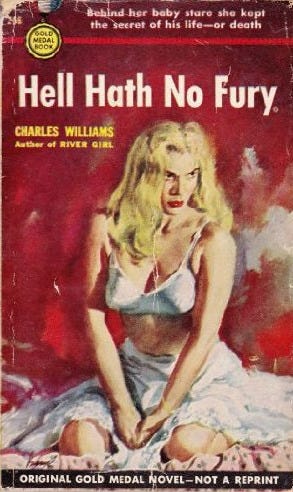Believe it or not, the mid-century pulps were so full of talent that there are still vast expanses of territory to explore after you’ve read and reread everything by the Hammetts, Chandlers, McBains and MacDonalds. If you’ve reluctantly turned to new fiction, but the idea of another “quirky detective with a lovable pet” makes you want to do something that would make a Jim Thompson protagonist shudder, here are three masters you might have forgotten from the golden era of pulp.
Lionel White
If you think elaborate heists and double-crosses are some kind of post-Tarantino invention, Lionel White would politely disagree—by running circles around your favorite movie plot. White’s books are blue-collar, clock-punching crime fiction: tight, cold-blooded, and totally unconcerned with your feelings. Start with The Killing and see how thoroughly he enjoys dismantling supposedly “perfect” crimes one botched detail at a time. The novel was adapted for the screen in 1956 as Stanley Kubrick’s first film. Kubrick co-wrote the screenplay with none other than crime fiction Mount Rushmore legend Jim Thompson.
Charles Williams
Williams had the gall to set his noir not in glamorous cities, but along muggy Gulf Coast backwaters and towns where ambition goes to die. Hell Hath No Fury (later The Hot Spot) proves Williams could make a rotten deal seem downright inevitable. His writing strips away the last comfort: nobody here is getting saved, or smart, or even especially lucky. If you’re tired of wisecracking urban sleuths and want to see what happens when desperation meets its natural environment, Williams is your man.
Day Keene
Day Keene wrote like he knew you probably wouldn’t remember his name, so he made sure you remembered the messes his characters got into. His typical protagonist: just one bad decision from disaster—sometimes less. Home is the Sailor opens with its hero penniless, drunk, and humiliated, and then things deteriorate. Keene doesn’t have time for finesse or literary showboating. He deals in ugly luck, sudden violence, and endings that rarely leave anyone unscathed—least of all the reader.
Those are, of course, just three of any number of excellent examples. If you’ve got any suggestions, feel free to leave them below.








The Killing is an excellent book. I really enjoyed it and I've been meaning to check out more of White's work. I haven't read the other two authors, but I definitely will. Thank you for sharing.